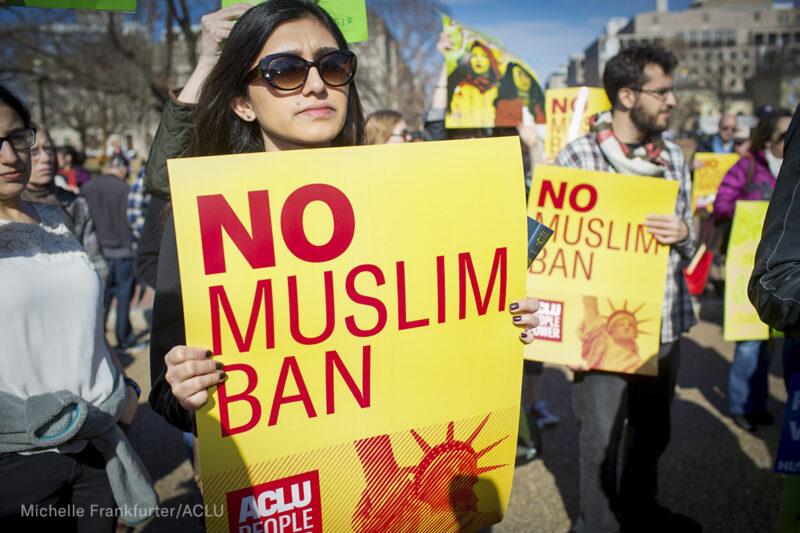
This piece first appeared in The New York Review of Books.
Ever since a “so-called judge” in Washington State issued a nationwide injunction against President Donald Trump’s ban on entry by foreign nationals from seven predominantly Muslim countries, the courts have played a critical part in checking the president’s constitutional excesses. The Supreme Court, however, has yet to assess the travel ban. That will change this week, when the court hears arguments in a challenge to the third and latest version of the ban. (The ACLU, where I serve as National Legal Director, has been counsel in successful challenges to all three versions of the ban, including one now pending before the Supreme Court.) The case most directly implicates the rights of Muslims, here and abroad, singled out for disfavored treatment by a president who promised to do just that as a candidate. But because the administration has argued that the court must blindly defer to the president, the dispute equally concerns the very role of the court in the separation of powers.
The Supreme Court has sometimes deferred to the political branches on matters of immigration and national security policy, but never on religious bias. And the constitutional case against the travel ban is overwhelmingly strong. Just as the Establishment Clause of the First Amendment prohibits the government from making any law “respecting an establishment of religion,” it also forbids the government from singling out for disfavor or condemnation any particular religion. This prohibition is absolute; never in the court’s history has it found an example of justifiable religious condemnation. Yet the travel ban is, in Trump’s own words, a ban on Muslims.
As a candidate, Trump called for “a total and complete shutdown of Muslims entering the United States,” because, he argued, “Islam hates us.” He also explained that he would do so by using “territory” as a proxy for religion. One week after taking office, he delivered on his promise, banning the entry of immigrants from seven nations, all with populations that are over 90 percent Muslim: Iran, Iraq, Libya, Somalia, Sudan, Syria, and Yemen. The executive order applied even to individuals who had been vetted, approved for immigration to the United States, and granted visas. In case there was any doubt about the order’s purpose, Trump appeared on a national Christian broadcasting station the same day to explain that the order was designed to favor Christian over Muslim refugees. When several courts declared that order unconstitutional, he issued a new one, this time barring the entry of immigrants from six of the original seven predominantly Muslim nations. (Iraq was removed from the list, and people who had previously been granted visas were exempted, but otherwise the ban was virtually the same.) While Trump dismissively called the new order “watered down” and “politically correct,” administration officials claimed it furthered the same purpose as the first one.
Stay informed
Sign up to be the first to hear about how to take action.
By completing this form, I agree to receive occasional emails per the terms of the ACLU's privacy statement.
By completing this form, I agree to receive occasional emails per the terms of the ACLU's privacy statement.

